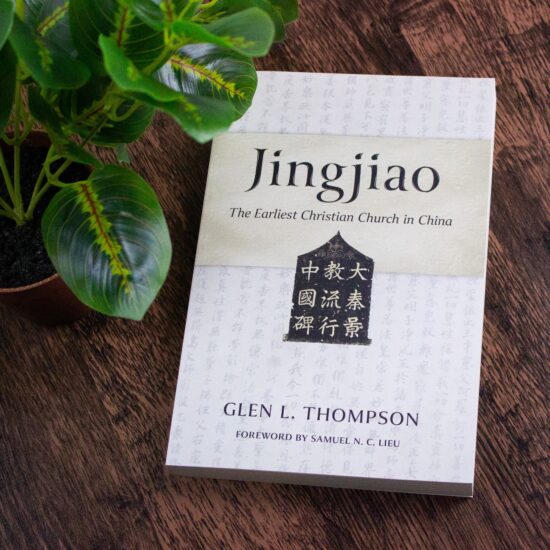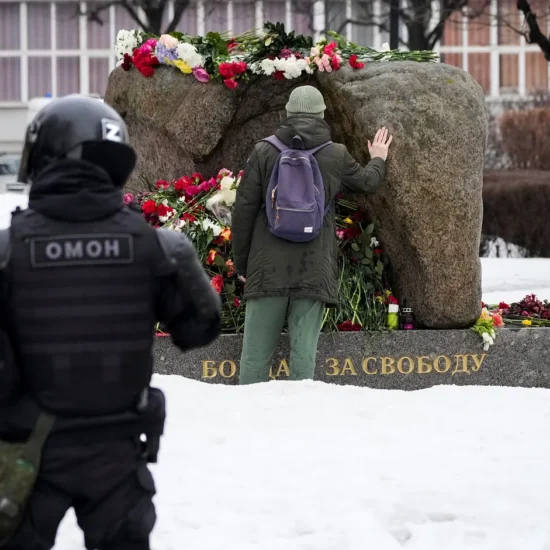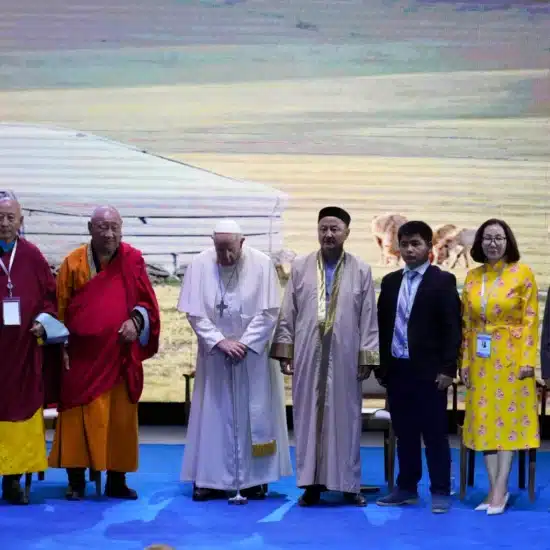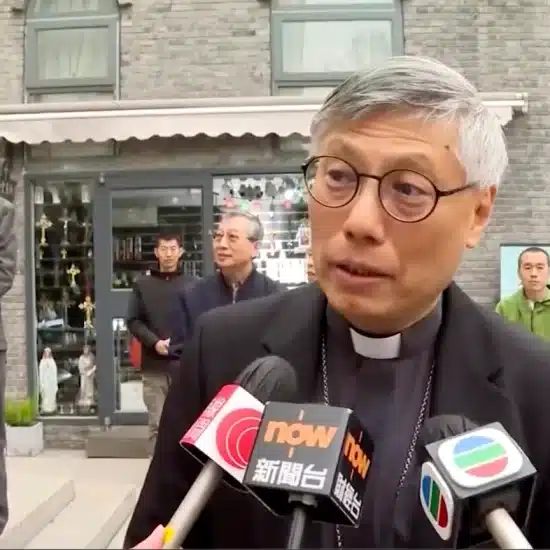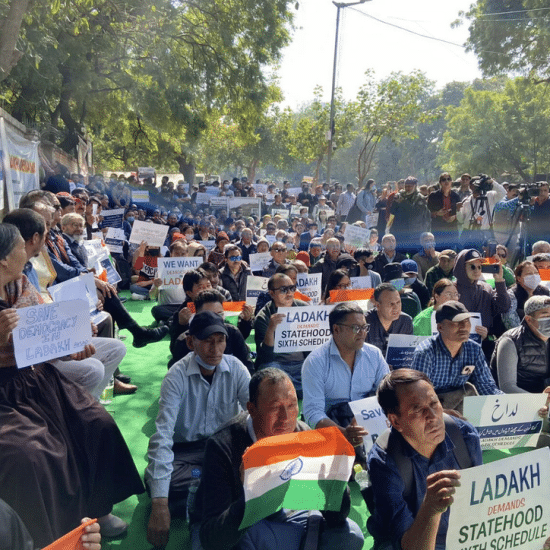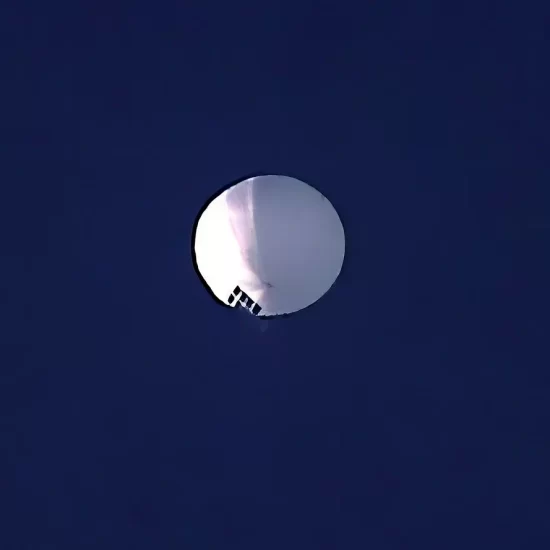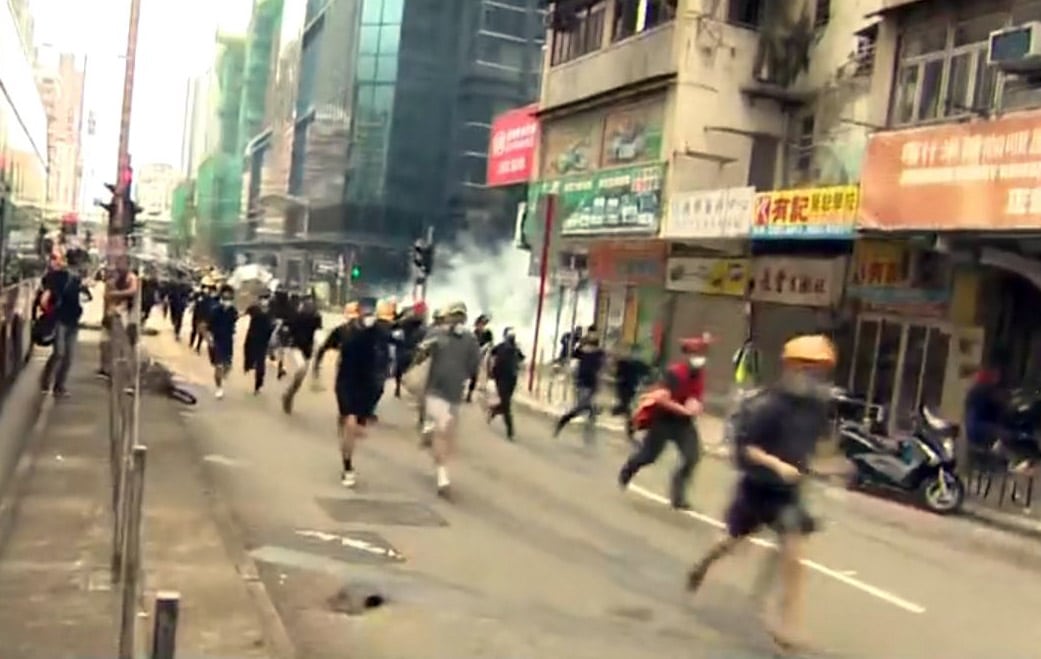
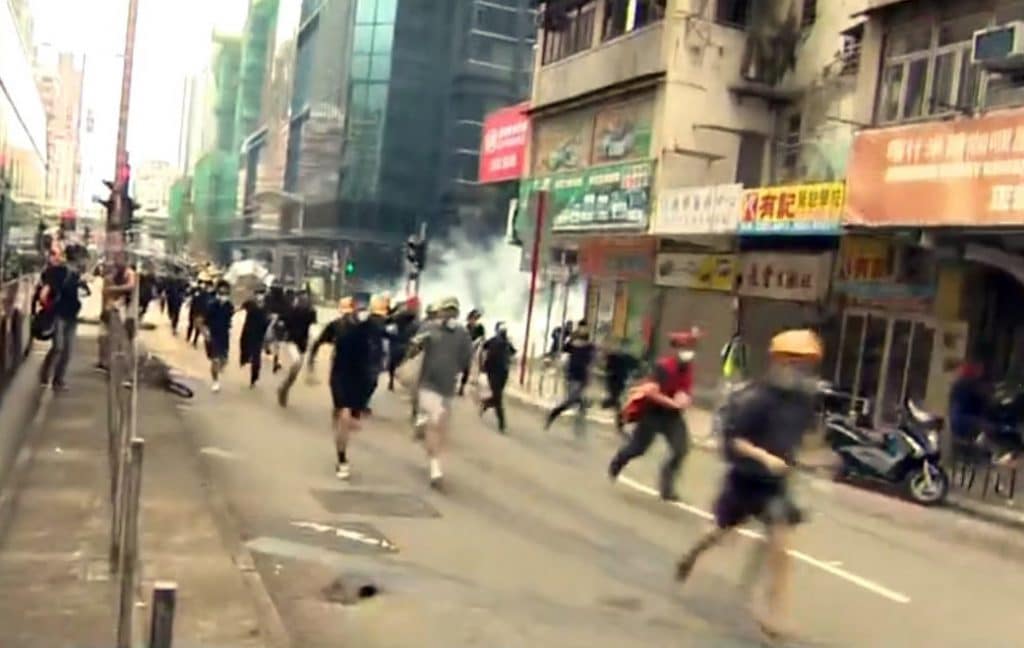
Hong Kong police used tear gas and rubber bullets to disperse protesters across the city. Screen capture from CBS News
HONG KONG (BP) — A proposed extradition law sparking violent protests at Hong Kong’s airport would make it easier for China to persecute Hong Kong Christians, a religious freedom advocate told Baptist Press.
Christians, who comprise about 10 percent of Hong Kong residents, are participating in the protests while promoting peaceful resistance, said Gina Goh, International Christian Concern’s regional manager for Southeast Asia.
Hong Kong is a nearly autonomous special administrative region of China with separate executive, legislative and judicial powers, operating under a “one country, two systems” model. Christians enjoy more freedoms in Hong Kong than in mainland China, Goh said, where the Communist Party has initiated intense religious persecution. The Fugitive Offenders Ordinance could erode freedoms in Hong Kong where, for example, Christians can gather without obtaining a permit as required in China.
“Their concern is, first of all, Hong Kong is supposed to be operated in a one country, two systems model, but they feel like this extradition law in itself is trying to change it from one country two systems, to one country one system,” Goh told BP Tuesday (Aug. 13). “It’s very hurtful for all the freedoms Hong Kong is able to enjoy.”
Even under the one country, two systems model, Goh said, a Hong Kong Christian who shipped Bibles to China a few years ago was sentenced to two years in prison in China for operating a business illegally, since Bibles can only be sold in state-sanctioned locations on the mainland.
“In the future if this law passes, it means that anybody who tries to ‘smuggle Bibles in’ or have some type of interaction with the [Chinese] house churches inside,” Goh said, “you can basically be charged for something like illegal business operation or some kind of economic crimes.”
Also, strict religious regulations China enacted in February 2018 require Chinese to gain governmental approval for theological training, which many Chinese obtain in Hong Kong. In the city, Goh said, about 40 percent of all schools are faith-based.
“This is actually a very common practice for Chinese Christians, whether it’s state-sanctioned or house-church Christians, to go to Hong Kong to receive theological training, because they have more resources are they are more in touch with the Western schools,” Goh said.
The extradition law could also create “higher risks for (Chinese Christians) to come to Hong Kong or vice versa, for Hong Kong Christians to go inside (China) to help them or teach them,” Goh said, “because both sides can be charged.”
Hong Kong Executive Chief Carrie Lam has said the current extradition law proposal is dead, but citizens want Lam to ensure that the proposal will not be revived, Goh said. Protestors also fear Lam is losing control of Hong Kong to Beijing, Goh said.
Goh met with Protestant pastors and Catholic priests in June in China, she said, and witnessed firsthand the protests that are nearing three months. No one ever expected the protests to expand to include violence and a shutdown of Hong Kong International Airport, she said.
“At the very beginning, Christians were at the very forefront of the protests,” Goh told BP. “I was there. I was able to witness how people were singing the songs, singing ‘Hallelujah to the Lord’ for hours and hours nonstop. I saw people kneeling down in front of legislative council (members) praying, a lot of prayer vigils.
“Even up to this day,” Goh said, “there are still pastors that will come to the airport, that will come to the police station to continue to protest because they … are looking at this as fighting for justice, fighting for freedoms.”
The loss of freedom of speech, Goh said, also encroaches freedom of religion. “A lot of them feel like this is their last ditch to protect their city.”
While the extradition law, as it was proposed, exempted political and religious cases, Goh said Hong Kong residents have little faith that China would uphold its word.
Also fueling unrest in Hong Kong is Chinese President Xi Jinping’s vested interest in promoting Communism upon the 70th anniversary of the founding of the Peoples Republic of China Oct. 1, Goh said, and the fact that the 50-year one country, two systems agreement between China and Hong Kong expires in 28 years.
Xi wants to “showcase to the world that the Communist Party works,” Goh said. China is “very nervous” and needs “everything to be quiet when they have this celebration. Hong Kong is creating a huge headache for President Xi Jinping.”
If China sends in military forces and creates bloodshed, Goh said, the Western world will view it negatively.
“I’m just praying that we won’t see bloodshed,” Goh told BP. “My concern is also as things get more violent, people start to lose” a sense of rational behavior. “I think that’s not going to help with the cause” of freedom.

